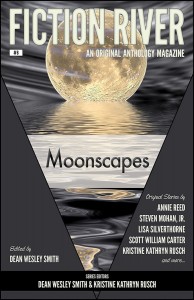Yesterday on the way to work, I heard a great piece on NPR about the power of chance as it relates to success. You can read the article, “Good Art Is Popular Because It’s Good. Right?” on NPR’s website, or even better, listen to the audio as I did. Here’s the crux of it:
To test how much of success should be attributed to chance and how much to quality, Salganik created a website that randomly funneled the 30,000 teenagers he recruited online into nine identical worlds.
Each of these worlds exposed the teens to 48 songs from emerging artists — bands that hadn’t yet been signed so were totally unknown to the teens. The deal was that after listening to the songs, the teens could download the ones they liked best for free.
Now in one world — the control world — they couldn’t see which songs their peers were downloading so there was no social influence. But in the other eight, the teens could see which songs had been downloaded before, so they knew what other people thought was good.
“So we had the exact same 48 songs competing against each other, we had the exact same initial conditions, everything starts with zero downloads, and we have indistinguishable groups of participants, because they were randomly placed into the world,” Salganik says.
And what did he find?
Different songs become popular in different histories — and not in small ways, either.
I’ve written about the power of luck in publishing before. The truth is, I think indie publishing in the age of ebooks is much closer to a meritocracy than traditional publishing ever was, but it’s only closer. Like all forms of success, luck plays a big part. All we can do is work harder and smarter, giving ourselves the best chance to find an audience. Nobody is entitled to a huge audience and big bank accounts, and no matter how hard you work, you aren’t guaranteed it. Joe Konrath and Barry Eisler have a great post up right now about this very subject, where they take on an anonymous “Big Bestseller” who challenges their claim that publishing is much more of a lottery than a meritocracy. While I agree with them in substance, I don’t think a lottery, which is entirely about chance, is a very useful analogy. How about poker? Luck definitely plays a part in poker, but so does skill. And over time, as long as that poker player gives herself the best chances to succeed, by playing a lot and striving to get better, quality will play a bigger and bigger role in her success.
That’s the issue I have with Salganik’s experiment. As far as I can tell, the musician only had one song. The less you work at something, the less work you produce, the less you get better, and the more it’s like a lottery and less it’s like poker.
But chance is a huge influence and always will be. That’s why the longer I’ve been writing, the more I’ve tried to stop focusing on goals that hinge in any fashion on luck. I’ve always been a proponent of focusing on what you can control and not on the things you can’t — how well books sell, money, awards, reader response — but lately I’ve taken it farther. This may sound a bit radical to those of you steeped in the Napoleon Hill way of looking at the world, as I once was, but I’ve tried to remove results from the equation at all. Instead I focus entirely on process. Not just a little, but entirely. I mean I’ve tried to remove all “destination goals” from my mind. It’s much closer to a Zen approach, taking a page from Ray Bradbury. The crux of it is this: It is possible to be a writer who is driven by the work itself and not the world’s response to it. It is possible to make your goals entirely about pages written, books read, other writers studied, etc, without attaching other destination goals to the back end– and yet still sit at the same poker table along with all the other players, because that is part of the process. The actual results won’t change, but man, you’ll be a lot happier.
It’s a subtle but powerful shift in thinking I’ve had trouble explaining to people in person, and I’ll probably take another stab at it in this blog before too long, but really it boils down to making the process the goal. In other words, the Zen archer is driven by shooting arrows as well as she can, not by hitting the target, even if in the end the former often leads to the latter.

